Jonathan and I went on a Texas ranch tour after the American Farm Bureau Annual Convention on Tuesday. We toured Blanco County, which has been in a drought situation for a few years. Our tour guide for the day is also the Blanco County Farm Bureau president, Don Casey. Don came up with a way to remove the spines of the cactus, making them easier for the cattle to eat. He invited the tour to his cattle pasture, where he gave a demonstration on how the process works.
Prickly Pear Cactus are common houseplants in Minnesota, but in Texas, they grow in pastures and ditches. They have two lengths of spines, both of them very sharp.
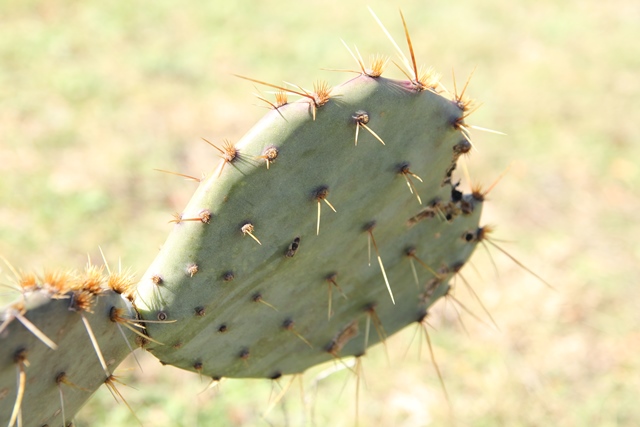
To begin his project, Don took a boat trailer, removed the rollers, and mounted an LP Tank on the back to make it very portable.
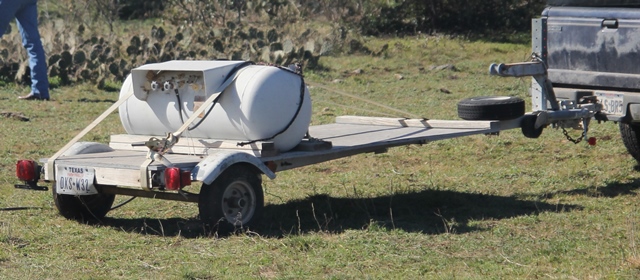
He uses a long burner arm to be able to reach into large patches of the cactus. It sounds and acts a lot like our flame weeder, only it is made for walking around with.
He burns the spines one side at a time, giving the smoke time to clear in between passes in order to make sure he isn’t missing any plants.
Here you can see the spines that are on fire. This is a very quick, effective way to remove the spines.
Notice the difference in color between the cactus in the foreground, and those in the back. When the flame is applied to the plant, it is lightly cooking the plant as well. Don flames enough cactus for one or two days of foraging, otherwise it rots before the cattle have a chance to use it for food.
In this close up, notice how shiny the outside of the plant looks compared to the first photo.
This is what the inside of the plant looks like – moist, and ready to eat. Cactus has a high water content, and is useful for its carbohydrates. The cattle are also fed a pelletized feed and minerals to balance out their diet.
Don has 25 head of cattle in this pasture, and they all were just waiting for us to move a little out of the way so they could get at the plants.
One person on our tour asked if the cattle like to eat the cactus. It was pretty obvious that they do when they all ran over to the patch and dug right in.
It was fun and interesting to see someone else using flames for a very different purpose than what we use it for.
We appreciate the American Farm Bureau for lining up tours to showcase agriculture in a different region, and to help bring an understanding that while we all are different, our roots are the same.
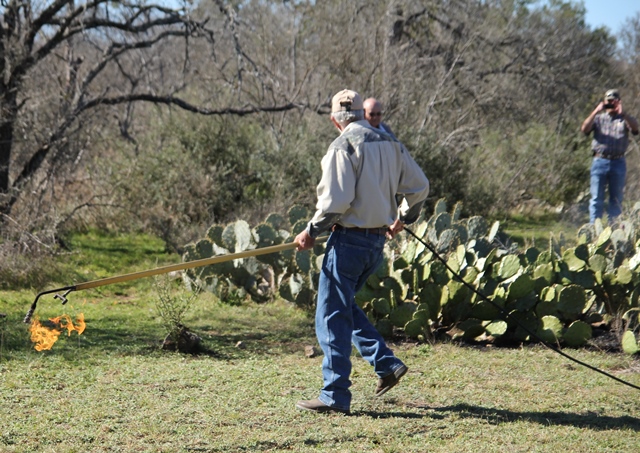
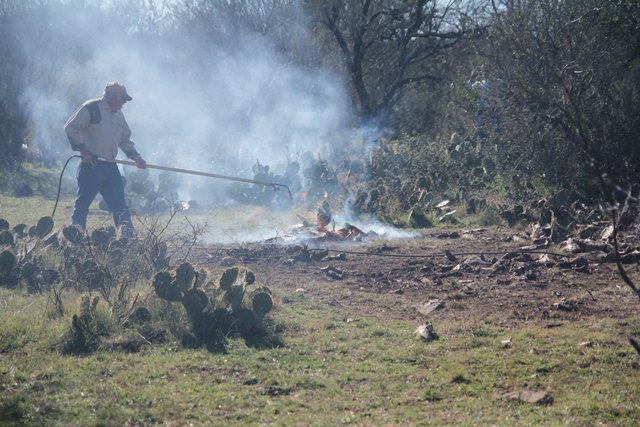
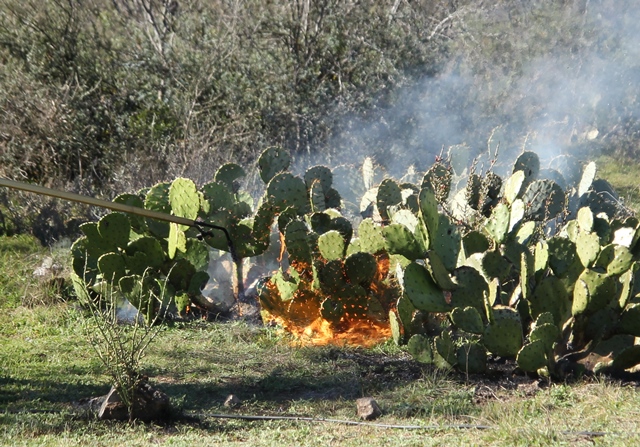
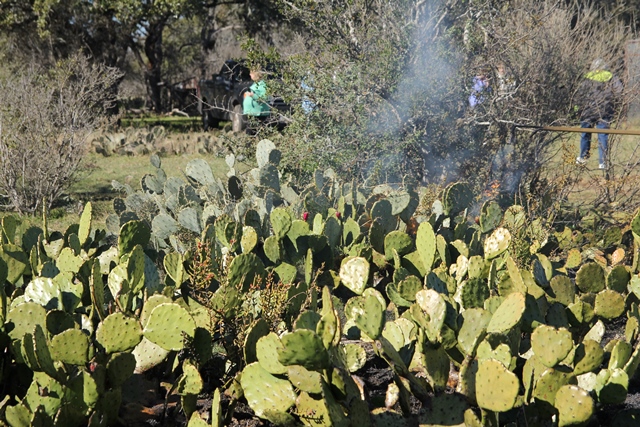
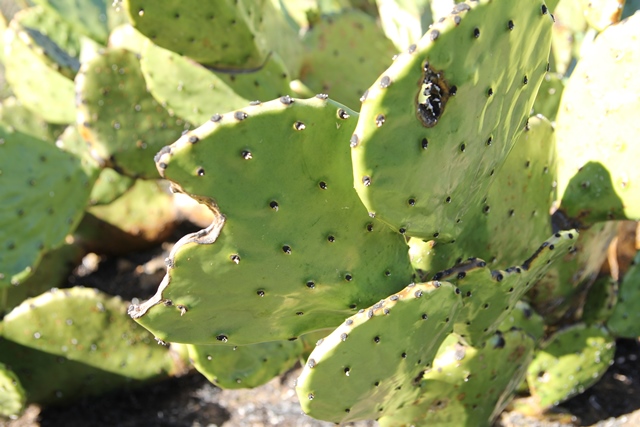
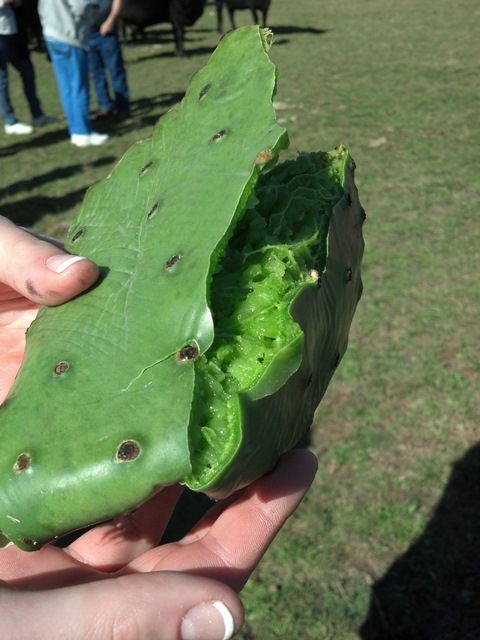
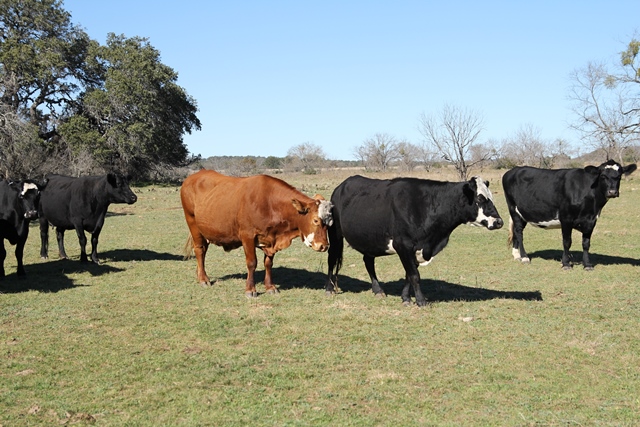
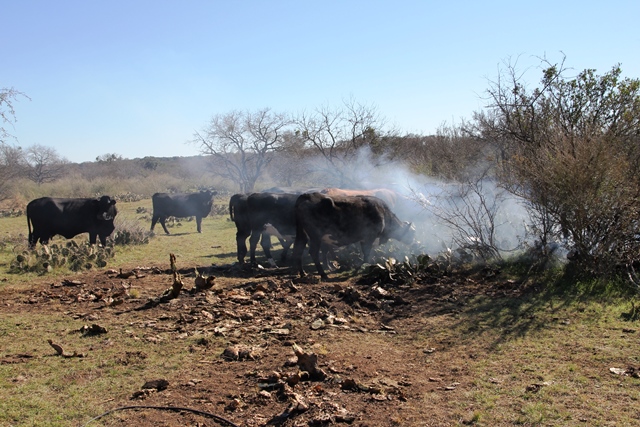

How cool! Looks like a fun task (lighting things on fire usually is haha). Also:
“I’ve got a cactus in my bathroom, but we’ve got nothing to say to each other.” Name that movie. Hint: supposed to be set in Wabasha, MN (I’m sorry. I couldn’t resist. It immediately came to mind when I read this post)
Lol! That has to be Grumpier Old Men!
Haha. I’m so happy you knew that.